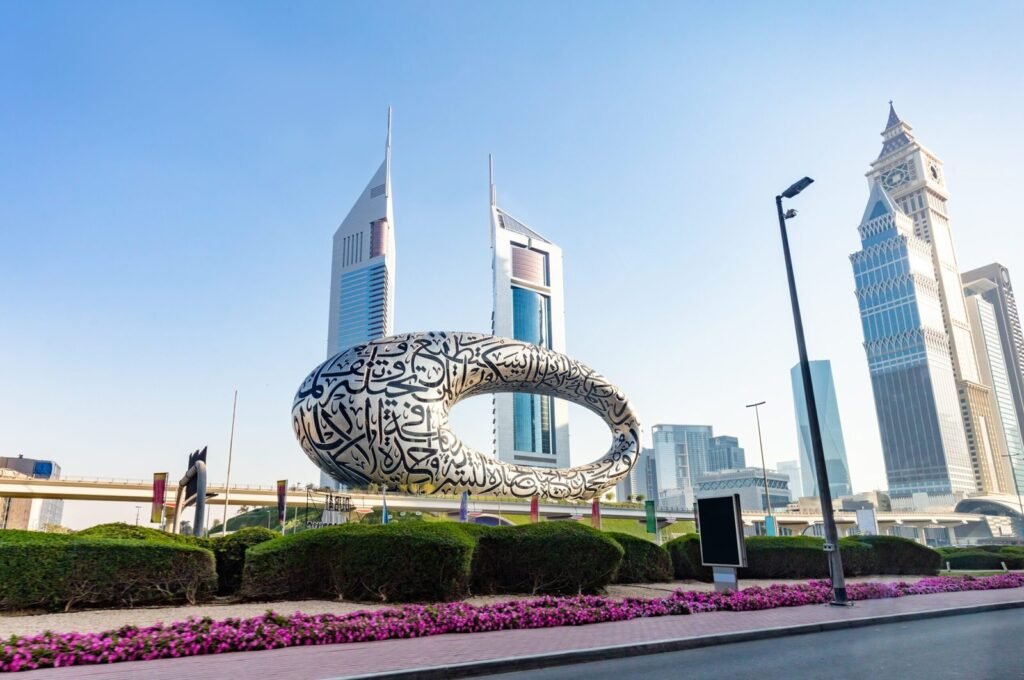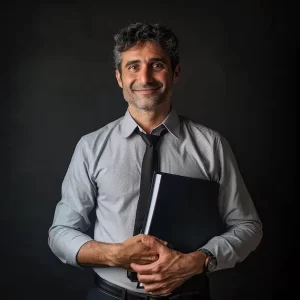
We are the Best Dubai Study Visa Consultants in Jammu

Dubai is a burgeoning destination for studies due to its reputable universities and diverse educational offerings. Its multicultural environment and robust economy also make it an attractive place for immigration, offering numerous job opportunities across various sectors. Additionally, as a travel destination, Dubai boasts stunning attractions, luxurious experiences, and a rich cultural tapestry, making it appealing for tourists and immigrants alike.
Unlock your potential and embrace a world of opportunities—study in the Dubai with Immi Talks, where your educational journey leads to a brighter future!

Dubai as a favorite destination for immigrants:
- Booming economy with ample job opportunities
- Tax-free income
- Diverse range of industries
- Modern infrastructure
- High standard of living
- Multicultural environment
- Welcoming policies
- Safety
- World-class amenities
Education System:
International students opt for Dubai for higher studies due to:
- Quality Education: Renowned universities offering quality education and globally recognized degrees.
- Diverse Programs: Varied academic programs catering to different fields and interests.
- Cultural Diversity: Exposure to a multicultural environment and global perspectives.
- Innovation Hub: Opportunities to be part of an innovative, forward-thinking environment.
- Employment Prospects: Access to job opportunities and internships in a growing economy.
- High Standards of Living: A high standard of living with modern amenities and safety.
- Networking Opportunities: Connections with international professionals and industries.
- Strategic Location: A gateway to both the East and the West, providing diverse experiences.

Experience Exceptional Service and Real Results with Us—Your Success is Our Commitment
Intakes
In Dubai, university intakes often follow a semester system with two main intakes:
- Fall Intake: Usually starts in September/October and runs through December/January.
- Spring Intake: Begins around January/February and extends to May/June.

Top Universities in Dubai:
Some of the top universities in Dubai include:
- American University in Dubai (AUD)
- University of Dubai (UD)
- Zayed University
- Heriot-Watt University Dubai Campus
- Middlesex University Dubai
- Manipal Academy of Higher Education (MAHE) Dubai Campus
- University of Wollongong in Dubai (UOWD)
- Canadian University Dubai (CUD)
- Murdoch University Dubai
These universities offer a wide range of programs and attract a diverse student body from various parts of the world, providing a multicultural learning experience.
The most in-demand courses for international students in Dubai:
- Business Administration and Management
- Engineering (Civil, Mechanical, Electrical, etc.)
- Information Technology (Computer Science, Cybersecurity, Data Analytics)
- Hospitality and Tourism Management
- Healthcare and Medicine (Healthcare Management, Nursing, Allied Health)
Media and Communication (Media Studies, Journalism, Communication)
These courses align with Dubai’s economic sectors and growth industries, offering significant career opportunities and professional development for international students.

Working Rights
In Dubai, the working rights for students vary based on their status and regulations set by the government. Here’s an overview:
- During Studies: Typically, international students in Dubai are allowed to work part-time (usually up to 20 hours per week) during academic sessions and full-time during scheduled breaks or vacations. However, this is subject to approval and specific regulations set by the university and the government.
- After Studies: Upon graduation, students in Dubai can apply for a post-study work permit or visa extension, allowing them to seek employment in the country for a certain duration. This period might range from a few months to a couple of years, depending on the regulations at the time and the graduate’s qualifications.
Scholarships:
In Dubai, several universities offer scholarships and financial aid to support international students. These scholarships can vary in terms of eligibility criteria, coverage, and availability. Common types of scholarships for international students in Dubai include:
- Merit-Based Scholarships: Awarded based on academic excellence or outstanding achievements.
- Need-Based Scholarships: Granted to students based on financial need.
- Country-Specific Scholarships: Some universities offer scholarships specifically targeted at students from certain countries or regions.
- Sports or Art Scholarships: Granted to talented athletes or artists who demonstrate exceptional skills.
- Research Scholarships: Provided to support students engaged in specific research projects or academic pursuits.
- Corporate or Government Sponsorships: Some organizations or government bodies in Dubai offer sponsorships or financial aid to international students pursuing higher education.
Each university has its own set of scholarship programs, and the availability of scholarships may vary from year to year.


Expenses
The total expenses for international students in Dubai for one year, including tuition fees and living costs, can vary widely based on several factors such as the university, type of accommodation, lifestyle, and personal spending habits.
- Tuition Fees: For undergraduate programs, tuition fees can range from around $10,000 to $30,000 per year, depending on the university and the course of study. For postgraduate programs, fees might be higher, averaging between $12,000 to $40,000 per year.
- Living Expenses: This can vary significantly based on accommodation choices (on-campus, off-campus, shared accommodation), lifestyle preferences, and spending habits. On average, living expenses (including accommodation, food, transport, and miscellaneous expenses) can range from $10,000 to $20,000 per year.
Taking these estimates into account, the total expenses for an international student in Dubai for one year, including tuition fees and living costs, might range from approximately $20,000 to $50,000 or more, depending on individual circumstances and choices.
Permanent Residency
Dubai and the wider UAE don’t have a traditional permanent residence program. However, they offer long-term visas that grant extended stays for investors, professionals, retirees, and outstanding students.
The Golden Visa is one such initiative, offering extended residency to investors, entrepreneurs, highly skilled individuals, and students with exceptional talents. It provides residency for 5 or 10 years, allowing holders to reside, work, and study in the UAE without the need for a national sponsor.
Another is the Retirement Visa, which grants long-term residency to retirees, provided they meet specific financial criteria.
The eligibility criteria and requirements for these visas can vary, often involving investments in real estate, businesses, academic achievements, or demonstrating exceptional skills or contributions in various fields.
Ready to Turn Your Dreams into Reality? Let’s Make It Happen Together with Immi Talks—Your Journey Starts Here.
Student Testimonials

Avneesh Srivastava
The resources and information provided by Immi Talks were invaluable. I felt prepared for every step, from applying to universities to getting my student visa. Highly recommend!

Prem Kumar
Immi Talks made my transition to studying in Europe seamless. They helped me find a great university and accommodation. Their expertise truly made a difference!

Pankaj Mehta
The scholarship opportunities provided by Immi Talks opened doors I never thought possible. Their commitment to helping students achieve their dreams is truly inspiring.

Samir Verma
Thanks to Immi Talks, I received excellent advice on choosing the right program and university. Their team's encouragement and expertise were exactly what I needed!

Vikram Joshi
Immi Talks is a lifesaver! They guided me through the visa application process, and I couldn't have done it without their support. I'm now studying at my dream university!

